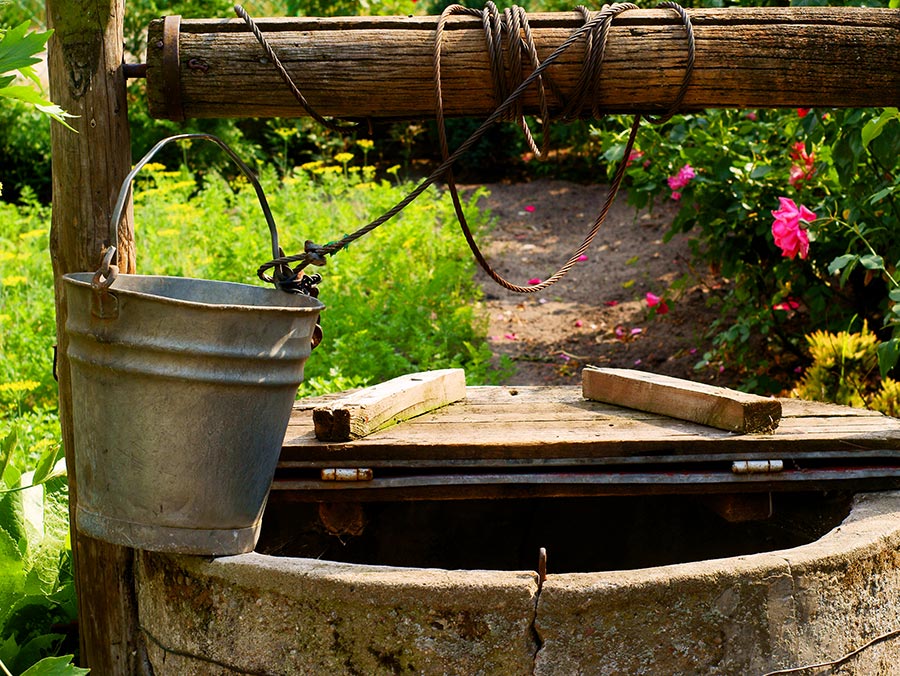
Have a private well, then water quality testing should be important to you!
Source: Environmental Fact Sheet – New Hampshire Department Of Environmental Services
If you have a private well, then water quality testing should be important to you and your family. Some contaminants in drinking water have been linked to cancer and toxicity, posing a risk to human health. Many contaminants often have no taste, odor, or color. Their presence can only be determined by laboratory testing.
While there is no state requirement to have your well water tested (although there may be from your mortgage lender or town), the New Hampshire Department of Environmental Services recommends that all homeowners with private wells do so.
Contamination of Wells
Well water originates as rain and snow that then filters into the ground. As it soaks through the soil, the water can dissolve materials that are present on or in the ground, becoming contaminated.
Some contaminants are naturally occurring in soil and rock. These include contaminants such as bacteria, radon, arsenic, uranium, and other minerals.
Other contaminants find their way onto the land from human activities. Industrial and commercial activities, improper waste disposal, road salting, and fuel spills can introduce hazardous substances to the ground. However, even typical residential activities, such as the use of fertilizers and pesticides, fueling of lawn equipment, and disposal of household chemicals, can contaminate the ground when done improperly. That is why taking measures to protect your well from contamination is so important.
Recommended Tests
The following tests identify common contaminants found in our state’s well water. Although more tests could be added, this list provides a cost-effective, reasonable overview of a well’s water quality. Contact a certified laboratory for availability and pricing. It is not necessary to do all of the tests at one time. (For a list of certified laboratories, visit www.des.nh.gov , go to the A to Z List, and find Laboratory Accreditation.)
Standard Analysis
This basic analysis covers the most common contaminants (see list below). Some of these contaminants pose health-related concerns, while others only affect aesthetics (taste and odor) or provide information needed in order to determine the appropriate treatment for the water.
Radiological Analysis
New Hampshire’s geology contains naturally occurring radioactive elements that dissolve easily in well water. A basic radiological analysis will test for uranium, analytical gross alpha, and radon gas.
Radon is a common well water problem in New Hampshire and testing for it may be required by your lender or your municipality. Presently, there are no federal or state standards for radon in drinking water, only suggested action levels. DES estimates that approximately one-third of private wells in New Hampshire exceed DES’s suggested action level, so radiological testing is encouraged.
Volatile Organic Compounds (VOCs)
The most common VOCs come from gasoline compounds (such as MtBE and benzene) and industrial solvents. MtBE can be found in well water even in remote areas.
Additional Tests
Circumstances relative to your well may indicate additional testing not described here. For instance, DES does not recommend routine testing for pesticides, herbicides, or synthetic organic compounds, mainly because of the high cost. However, such testing might be warranted if your water has elevated nitrite/nitrate concentrations or if significant amounts of pesticide have been applied near the well.
These less-routine tests may not be available at all laboratories.
When To Test
DES recommends that regular testing be performed at the intervals shown in the chart below. Prospective homebuyers should test the water in a home with a private well before purchase. Water quality in wells is generally stable, and if a change is going to occur, it occurs slowly. Thus the interval between water quality tests, once you have purchased the home, can generally be in terms of years (see chart) if a well is properly constructed and located in a safe area.
- However, the following conditions would indicate more frequent testing:
- Heavily developed areas with land uses that handle hazardous chemicals.
- Recent well construction activities or repairs. DES recommends taking a bacterial test after any well repair or pump or plumbing modification, but only after substantial flushing of the water system.
- Contaminant concentrations above state or federal standards found in earlier testing.
- Noticeable variations in quality such as a water quality change after a heavy rain or an unexplained change in a previously trouble-free well, for example, funny taste, cloudy appearance, etc.
When taking any sample, DES recommends that it be taken after a heavy rainstorm. These events tend to highlight conditions of improper well construction or poor soil filtration.
Contaminants and Testing Frequency Standard Analysis Testing Frequency Arsenic Bacteria Chloride Copper Fluoride Hardness Iron Lead Manganese Nitrate/Nitrite pH Sodium Uranium Every 3 to 5 years (except for bacteria and nitrate, which are recommended yearly) Radiological Analysis Radon Uranium Analytical Gross Alpha Every 3 to 5 years VOCs Every 3 to 5 years
What the Tests Tell You
Results will reveal the level at which any of the tested substances were found in your water sample. The mere presence of these contaminants in well water does not necessarily imply that there is a problem. However, when levels exceed state or federal health standards, you should take steps to correct the situation. Several methods are available from commercial contractors to treat contaminated water. The DES web site has fact sheets concerning all common water quality problems and their solutions.
For More Information
For a list of certified laboratories, visit www.des.nh.gov, go to the A to Z List, and find Laboratory Accreditation. For other information, please contact the Drinking Water and Groundwater Bureau at (603) 271-2513 or dwgbinfo@des.nh.gov or visit www.des.nh.gov, click on A-Z List and choose Drinking Water and Groundwater Bureau. All of the bureau’s fact sheets are on-line at http://des.nh.gov/organization/commissioner/pip/factsheets/dwgb/index.htm.
